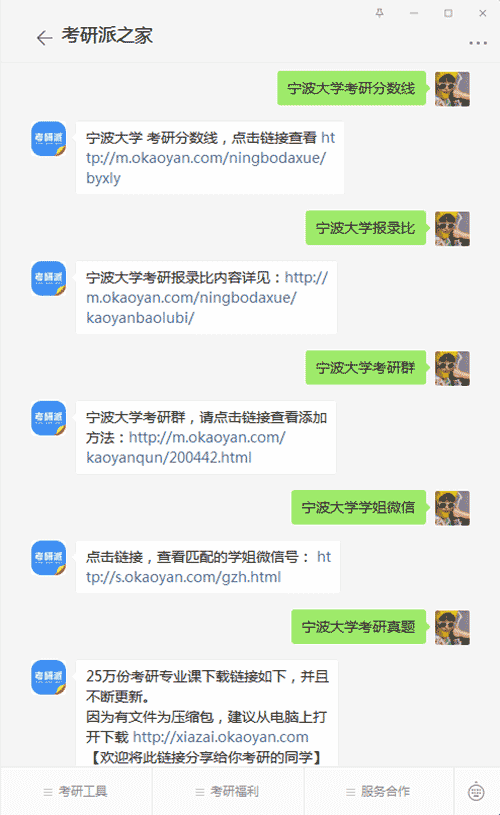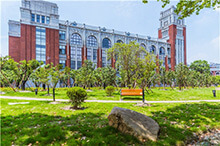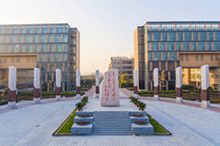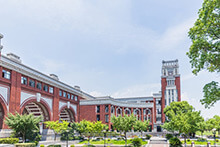宁波大学海运学院简介 正文
宁波大学海运学院(Ningbo University Faculty of Maritime and Transportation)是交通部向国际海事组织(IMO)推荐的我国首批7所高等航海院校之一,也是香港船东会第一届中国海运院校论坛常务委员会副主席单位。学院根据经修正的《STCW公约》和《中华人民共和国船员教育和培训质量管理规则》,建立了《宁波大学船员教育和培训质量管理体系》,对整个教学过程进行管理和监督,确保学生的培养质量。学院依托综合性大学的外语、计算机等基础学科优势,加强基础教育,注重学生的人文素质教育和综合素质培养;坚持知识、能力、素质协调发展,构筑新的人才培养模式。学院围绕“船舶与海洋工程”和“交通运输工程”二个一级学科建设,突出港航特色,促进学科交叉和协调发展;以教学为中心,积极开展科学研究和社会服务,通过学科建设带动专业和团队建设,是我国航运业、物流业和交通运输业高层次人才的重要培养基地之一。学院立足行业、地方经济的发展需求,立足省市海洋经济发展需求,紧紧围绕“海洋”“港口”“航运”三个关键词,在新能源、新装备、节能环保、海洋高新技术、海洋经济产业、现代港航服务业及智慧物流、智能交通等领域开展科学研究和合作,也是宁波大学最具鲜明行业特色及与区域经济结合最紧密的学院之一。2016年,学院获批宁波市首批试点特色学院。
宁波大学海运学院的前身为1986年设置的原浙江水产学院航海系的海洋船舶驾驶专业和1987年设置的原浙江水产学院机械系的轮机管理专业。1991年,轮机管理专业从浙江水产学院机械系里分离出来,并入航海系管理。1994年,轮机管理专业又从航海系里分离出来,成立轮机系。1996年10月,浙江水产学院宁波分院与宁波大学合并,同年12月原浙江水产学院宁波分院航海系和轮机系合并成立宁波大学海运学院。2001年5月,原国家海洋局所属的宁波海洋学校船舶类专业并入宁波大学海运学院。
学院目前有航海技术、轮机工程、物流管理和船舶与海洋工程等4个本科专业,“船舶与海洋工程”和“交通运输工程”等2个一级学科硕士点,“交通运输”和“土木水利(船舶与海洋工程领域)”等2个工程类专业硕士学位类别和领域;拥有一个“渔业设施与装备”二级学科博士点、“船舶工程与动力学”一级博士点学科方向;与英国Napier 大学签订了联合培养攻读博士学位协议,并开始招收博士生。其中航海技术专业为省重点、省优势、校重点专业,轮机工程专业为市重点专业,物流管理专业是省、市特色、校重点建设专业,也是浙江省首批创办的物流本科专业,“航运与港口物流”专业群为宁波市服务型教育重点专业。两个一级学科——船舶与海洋工程学科和交通运输工程学科都被列为省、市重点学科。学院还设有海事技术、机电与能源工程、交通运输与物流和船海工程等四个研究所;拥有国家道路交通管理工程技术研究中心宁波大学分中心;学院还是江苏省首批2011协同创新中心——“2011现代城市交通技术协同创新中心” 主要成员单位;是浙江省2011协同创新中心“港口经济协同创新中心”、宁波大学首批2011协同创新中心——“浙江港航物流服务体系协同创新中心”的主要成员单位。
学院在编专任教师中教授、副教授占55%,具有博士学位教师占65%以上;拥有挪威皇家科学院院士、英国皇家工程院院士、挪威皇家科学与文学院院士、中国工程院外籍院士1名;领军人才5名;国务院学科评议组成员1名、国家教学指导委员会成员3名;浙江省“新世纪151人才工程”第二层次人员1名、第三层次培养人员5名;交通部新世纪十百千人才工程第一层次人选1名,宁波市“3315”团队1个,“3315”个人1名,泛“3315”个人1名,宁波市“甬江学者”1名;宁波市领军和拔尖人才第一层次人选1名、第二层次人选1名、第三层次人选3名,浙江省有突出贡献的中青年科技人员1名,浙江省高等学校中青年学科带头人2名,宁波市有突出贡献的中青年科技人员1名,宁波市高校名师1名、培养对象1名,省重点学科带头人2名。
学院具有较完备的教学和科研设施,由海运基础实验室、海运专业实验室、物流实验室、船舶与海洋工程实验室等四部分组成,共36个实验分室。拥有包括船舶动力系统及自动化实验中心、船舶与海洋工程拖曳水池实验室、航海技术虚拟仿真实验中心、大型轮机模拟器、综合物流模拟室、港口管理实验室、综合导航驾驶台、主机性能与测试实验室、模拟船、高消实验楼、天象馆和波流水槽等多个国内处于领先水平的实验室,较好地满足了全体师生开展教学科研的要求。
学院近5年科研立项500余项,其中包含欧盟地平线2020项目、国家科技部重点研发项目、国家863科技计划项目、国家自然基金重大研究计划项目、国家自然基金项目等国家级项目40多项,省部级项目40余项;与企业合作获得国家科学技术进步二等奖1项,获省、市科技进步奖多项。学院坚持服务社会为己任,紧密结合地方经济发展需求,通过产学研合作、专家服务、科研成果转化和开展各类各种层次的教育培训,助推地方经济发展。近五年,培训社会学员超过5万人次,横向科研经费年均达千余万元。
在学校“把成才的选择权交给学生”教育理念的基础上,学院坚持以培养学生人文素养、合作竞争意识、创新创业能力的国际高素质创新型人才为目标,创新以学生党团建设为龙头、创新创业能力培养为核心、学生生涯辅导为主线的学生人才培养模式。通过凝练海运青年特色,进一步构建学院文化新体系,构建起师生间‘互信、互动、互助’的海运文化;通过创新师生互动载体,进一步营造全员育人的导师文化氛围;通过拓展创新创业平台,进一步培育海运创新创业人才;通过打造毕业生助推工程,进一步提升学生就业工作水平,学生就业竞争力显著提高,用人单位满意度明显提升。
近年来,学生创新创业成果不断涌现,学生生获国家级科研立项、发表论文、获专利授权连年增长,获全国“互联网+”大学生创业大赛银奖1项,“挑战杯”竞赛国家三等奖4项,1名同学以第2名的成绩摘得浙江省职业生涯规划“十佳规划之星”,入围“调研中国”全国十五强榜单(浙江省唯一),学院创新创业大赛业绩位居学校前列。中国教育报、中国科学报3次专题报道我院学生创新创业工作。学院毕业生就业率均达100%。。(2019-09)
Ningbo University Faculty of Maritime and Transportation is one of seven marine navigation institutions that were firstly recommended by the Ministry of Communications of China to the International Maritime Organization (IMO). It is also the Vice Chairman of the First Chinese Marine Navigation Institution Forum Standing Committee which was hosted by the Hong Kong Ship owners Association. To ensure the quality of education, “Maritime Education and Training Quality Management System" has been established to monitor the whole process of teaching according to the “STCW 78 / 10 Convention” and the “Maritime Education and Training Quality Management Rules of People’s Republic of China”. Aiming to establish the new talent cultivation model that focuses on the coordinative development of students’ knowledge, capability, and quality, the faculty not only puts its emphasis on teaching the students professional knowledge in navigation, but also pays lots of attention to the cultivation of humanistic quality and comprehensive quality. Leading by the development of two first-level disciplines as " Naval Architecture & Ocean Engineering" and" Transportation Engineering", the faculty actively promotes coordinated development among disciplinary by taking the shipping and port management advantages. As one of the most important platforms for training high-level logistics and shipping professionals in China, the faculty takes teaching as the main task. In the meantime, scientific research and social services are actively carried out. Based on the background of maritime economy in Zhejiang as well as local economic development, the faculty develops very fast around the themes of “Ocean”, “Port”, and “Shipping”. Extensive cooperation has been shown in the fields of new energy, new equipment, energy saving and environmental protection, new marine technology, marine economy industry, modern logistics, shipping services and smart logistics, and intelligent transportation. The full integration with the local industry gives the faculty special characteristics that make it distinctive from other faculties in Ningbo University.
The Faculty of Maritime and Transportation origins from two disciplines of Zhejiang fisheries College: Marine Navigation and Marine Engineering. The Marine Navigation was set in the Navigation Department in 1986 while the Marine Engineering was initially in the Mechanical Engineering Department in 1987. In 1991, the Marine Engineering was merged under the Department of Navigation and then was transferred from the Navigation Department in 1994 to the new department named Marine Engineering Department. In 1996, Zhejiang fisheries College Ningbo Branch was merged into Ningbo University. As a result, the Department of Navigation and Marine Engineering in Zhejiang fisheries College were merged as the Faculty of Maritime and Transportation in Ningbo University. In 2001, the navigation related majors in Ningbo Ocean School, which belongs to State Oceanic Administration, were also merged into the faculty.
The Faculty currently has four undergraduate programs (Marine Technology, Marine Engineering, Logistics Management and Ships and Ocean Engineering) and one graduate program (the Master of Naval Architecture and Ocean Engineering). It has three institutes in the fields of transportation science, mechatronics & energy engineering, and logistics & port management, respectively. It also has three master programs of secondary level discipline, a engineering master degree program on ship and ocean engineering, a doctoral program of secondary level discipline on fishing facilities and equipment, has signed a agreement with NAPIER University in the UK for joint training doctoral program. Among the three institutes, the Marine Technology Program is key discipline in Zhejiang Province and in Ningbo University. The Marine Engineering Program is the key discipline in Ningbo. The Logistics Management Program which is the key discipline in the city is the earliest undergraduate program that was approved by the Ministry of Education in Zhejiang Province. Besides, the program of Naval Architecture and Ocean Engineering, Transportation Engineering are all key disciplines in both Ningbo City and Zhejiang Province. Shipping and Port Logistics related disciplines are key service-oriented majors in Ningbo. The college also has four institutes as maritime technology, electrical and energy engineering, transportation and logistics, ship and ocean engineering. The national road traffic management Engineering Research Center, Ningbo University sub-center is also located in the college. It is also a main member of 2011 Modern Urban Transportation Technology Collaborative Innovation Center, and one main member of Logistics service system Collaborative Innovation Center in port and shipping system in Zhejiang, which is also the first 2011 Collaborative Innovation Center in Ningbo University.
In terms of the qualification of faculty, professor and associated professor account for 55%. And 92% of the faculty have master degree or Ph.D.. 50% of faculty has the master’s license, or chief engineer certificate. One of the faculty was chosen as a candidate in the second level in the Zhejiang New Century 151 Talent Project, and four teachers were selected as candidates in the third level. One of the faculty has been selected as the one candidate of New Century Ten-Bai-Qian Talents Project in Ministry of Transportation at the first level. One of the faculty has been selected as a candidate of Ningbo leader and top-notch talent at the first level, at the second level, and at the third level, respectively. Two of the teachers have been chosen as the Young academic leaders in high education sector in Zhejiang, and one has been awarded as one of young scientists who give outstanding contributions in Ningbo. Among the excellent instructor team, one received the award of Zhejiang Young Scientist with Outstanding Contributions. One of the faculty was selected as Top University Teacher in Ningbo, and the other one was selected as a candidate. Two research leaders were assigned in key disciplines in the university.
The faculty has adequate types of equipment and facilities for education and research. The laboratory center has equipments valued over 22.5 million Yuan and has approximately 3300m2 laboratory. The facilities include marine simulators, marine power plant simulators, simulation rooms for integrated logistics, port management labs, integrated navigation bridges, machine’s performance and testing labs, ship simulator, fire safety laboratory building, and a planetarium. This advanced laboratory center meets the needs of teaching and research for the faculty and students.
In the past five years, the faculty has completed over 300 research projects, including 20 projects from National High Technology Research and Development Program of China and National Natural Science Foundation Program, and 30 projects at national, provincial and ministerial levels. National Science and Technology Progress Award has been given to the college based on cooperation with enterprises. Several kinds of such awards at he provincial and city level have been also given. Aiming to giving services to the society, the college promotes local economic development through research cooperation, expert services, scientific research transfer, and various levels of education and training programs. In the last five years, more than 50,000 of employees have been trained here, and more than ten million of fund was obtained from of society research programs.
The faculty is always aiming to help the students to develop professionalism, team work experience, and practice capability. It takes initiates in educating students by fostering a sound study environment for students as well as providing career advice services to make the students more competitive in their specialized studies and social activities. It manages the students at the marine program based on the military management method. By emphasizing the young specialties, a culture of “trust, commutation, and help” has been promoted through establishing a now college culture system. A full education instructor culture is established through innovative interactive tutor system. Through expanding platforms of innovation and entrepreneurship, it proceeds to cultivate creative talents. By introducing the graduates promoting program, the employment level and competition index of students has been greatly improved. The satisfaction degree of employers has been improved.
In recent years, there are increasing innovation and entrepreneurial achievements. National research projects,published papers and licensed patents are main forms of achievements of students. Some students has been given the top award, the first grade award, and third level award of Challenge Cup Competition of Extracurricular Scientific Work for College Students in Zhejiang province. The investigation team has been selected as the one of the top fifteen survey team at the national level, the only one in Zhejiang province. Students won the first prize in the national college student mathematics competition. One student was awarded the title of top ten stars for business planning in Zhejiang province. From2013 to 2014,11 new companies were registered by students. Chinese education newspaper reported the student innovative business in the college by a titled special report named “students improve ability, enterprises obtain talents”. The employment rate of the students in the college reaches to 100%.
宁波大学
添加宁波大学学姐微信,或微信搜索公众号“考研派小站”,关注[考研派小站]微信公众号,在考研派小站微信号输入[宁波大学考研分数线、宁波大学报录比、宁波大学考研群、宁波大学学姐微信、宁波大学考研真题、宁波大学专业目录、宁波大学排名、宁波大学保研、宁波大学公众号、宁波大学研究生招生)]即可在手机上查看相对应宁波大学考研信息或资源。


本文来源:
http://www.okaoyan.com/ningbodaxue/yanjiushengyuan_271915.html 




















































































